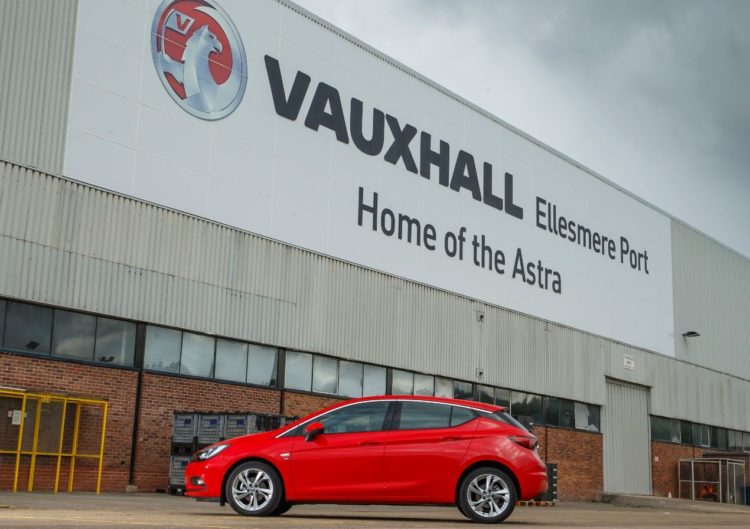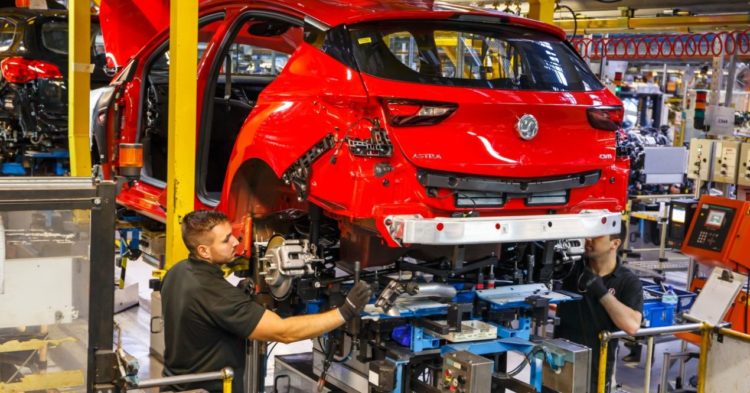As 400 jobs go at Vauxhall in Ellesmere Port does Brexit now threaten its existence?
Carlos Tavares, the boss of the factory’s French parent company PSA, says the lack of clarity over the UK’s exit from the EU makes it hard to decide on Vauxhall’s future strategy. Tony McDonough reports

Carmaker Vauxhall insists the cutting of 400 jobs at its Astra plant at Ellesmere Port is not connected to Brexit – but admitted Britain’s departure from the EU made the site’s long-term future uncertain.
Last month, the boss of the factory’s French parent company PSA says the lack of clarity over the UK’s exit from the EU made it hard to decide on Vauxhall’s future strategy.
The plant currently employs around 1,800 people at the Cheshire site producing the Astra model with annual output of around 140,000 vehicles.
PSA acquired the Opel and Vauxhall brands from General Motors Co for £1.9bn earlier this year to become the second-biggest carmaker in Europe by sales.
But sales of sports utility vehicles, of the type made at Jaguar Land Rover in Merseyside, have risen in recent times while the estates and saloons made at Ellesmere Port have become less popular.
Single shift
PSA announced on Friday that 400 jobs would go at the factory before Christmas, which it would look to achieve through voluntary redundancies, and added the plant would move to a single-shift operation.
A company spokesman in Paris, said: “Facing challenging European market conditions and a declining passenger car market, Vauxhall needs to adjust production volumes at its Ellesmere Port production facility to the current level of demand and to improve its performance, in order to protect its future.”
A Vauxhall spokesman told the BBC on Sunday that changes at Ellesmere Port were nothing to do with the uncertainty created by Brexit.
He added that a new generation Astra model was planned for the early 2020s and that it was necessary to make Ellesmere Port as competitive as possible so it was in a position to secure production of the vehicle.
And this is where Brexit may play a part in the longer-term future of the factory.

Brexit Warning
Speaking in Liverpool just a week before the EU Referendum in 2016 the then Chancellor George Osborne, on a visit to Liverpool, warned a leave vote put factories such as the Vauxhall plant at greater risk.
The EU is by far the biggest market for British-made cars with eight out of 10 vehicles made in the UK sold elsewhere in the single market.
And it is not just about export sales. Around 60% of the components of the Cheshire-produced Astra are imported from other suppliers in the EU.
Any imposition of trade tariffs on goods coming in from Europe after 2019 would be a severe blow to the factory’s competitiveness.
According to PSA Ellesmere Port’s current manufacturing costs were “significantly higher” than those of similar facilities in France.
This reality was reflected in comments made in September by PSA chief executive Carlos Tavares who said it was difficult to plan a strategy for Vauxhall without further clarity on the terms of Britain’s withdrawal from the EU.
Fight for survival
As far back as 2012 the Cheshire factory averted closure by the skin of its teeth when the then UK Business Secretary Vince Cable helped broker an 11th-hour deal with General Motors in New York to bring the seventh-generation Astra to Ellesmere Port.
GM’s Opel plant in Bochum, Germany, had expected to win production of the new model and when it instead came to the UK the Germans were reportedly “incandescent with anger”.
“We think they even had (Angela) Merkel on the phone to persuade GM to reverse its decision,” Mr Cable recalled earlier this year.
The minister had in his briefcase a list of generous concessions on pay and conditions from the trade unions in the UK who were eager to see their members secure the work.
Will anyone in the UK Government be willing to fight for Ellesmere Port as tenaciously as Vince Cable did this time around… and, even if they did, would it be enough in a post-Brexit world?
